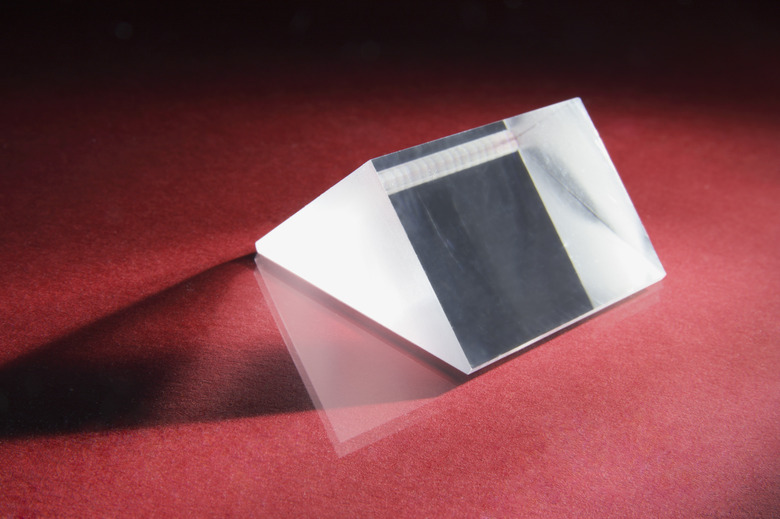What Are The Similarities And Differences Between A Prism And A Pyramid?
Prisms and pyramids are solid geometric shapes that have flat sides, flat bases and angles. However, the bases and side faces on prisms and pyramids differ. Prisms have two bases — pyramids only have one. There are a variety of pyramids and prisms, so not all shapes in each category look the same.
Similarities: Common Features
Similarities: Common Features
Prisms and pyramids are three-dimensional solid shapes that contain sides and faces that are polygons — two-dimensional shapes with straight sides. Both shapes fall under the large category — polyhedrons — because the sides and bases are polygons. **Neither prisms nor pyramids have rounded sides, rounded edges or rounded angles, distinguishing them from cylinders and spheres.** All of the side faces meet at the bases — or at the base in the case of pyramids. Prisms and pyramids come in a variety of sizes, ranging from hand-held objects to grand architectural buildings.
Differences: Bases
Differences: Bases
The bases on pyramids and prisms differ. **Prisms have two congruent — or identical — bases, and pyramids only have one base.** The shape of the base on pyramids and prisms can vary, depending on the shape of the overall three-dimensional object. For example, the base could have a square, rectangle, triangle, hexagon, pentagon or octagon shape. The base is never a circle or an oval on a prism or a pyramid.
Differences: Side Faces
Differences: Side Faces
The side-by-side faces, also known as lateral faces, on pyramids and prisms have different attributes. **Prisms have rectangular lateral faces and pyramids have triangular lateral faces.** In most cases, the lateral faces of both prisms and pyramids are angled toward the base or bases. The rare exception is the "right prism" — the faces are perfectly perpendicular to the base. The lateral faces are congruent triangles on a "right pyramid."
Differences: Vertex or Point
Differences: Vertex or Point
Pyramids differ from prisms because they have one central vertex, often referred to as an apex or a point, where the lateral faces meet. The vertex is directly above the center of the base, regardless of the shape of the base. Prisms don't have a vertex because there are multiple meeting points where the faces connect.
Cite This Article
MLA
Tucker, Kristine. "What Are The Similarities And Differences Between A Prism And A Pyramid?" sciencing.com, https://www.sciencing.com/similarities-differences-between-prism-pyramid-8611397/. 13 March 2018.
APA
Tucker, Kristine. (2018, March 13). What Are The Similarities And Differences Between A Prism And A Pyramid?. sciencing.com. Retrieved from https://www.sciencing.com/similarities-differences-between-prism-pyramid-8611397/
Chicago
Tucker, Kristine. What Are The Similarities And Differences Between A Prism And A Pyramid? last modified March 24, 2022. https://www.sciencing.com/similarities-differences-between-prism-pyramid-8611397/
